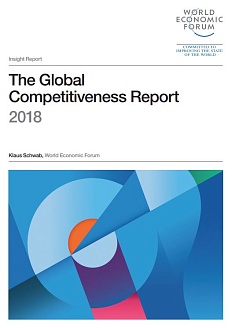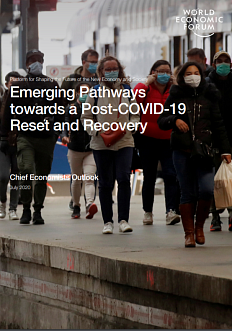This publication by the Organization for Economic Cooperation and Development (OECD) extends the normal two-year horizon of the OECD economic projections, which makes it easier to illustrate the potential advantages of structural reforms in education, governance, labor market policy, and product market regulation, because the effects of reform packages are often felt after several decades only.
In the baseline scenario with no institutional or policy changes, the living standards (real GDP per capita) in the OECD countries will continue to advance by 1.52% annually in the next 40 years. GDP per capita in the BRIICS countries (Brazil, Russia, India, Indonesia, China, and South Africa) will increase faster than that but annual growth will, however, slide from 6% (the rate achieved over the last decade) to just over 2% by 2060, so that GDP per capita in these countries will remain below half that of the leading countries. India and China take up a rising share of world output (between 20 and 25 per cent of worlds total GDP by 2060, compared to just over 40 per cent for OECD countries) as the worlds economic center of gravity shifts toward Asia. Demographic change weighs on living standards in the developed countries and will create strong fiscal pressures. Stabilizing public debt ratios at current levels while meeting fiscal pressures from higher health and pension expenditure requires the median OECD government to raise primary revenue by 6.5 percentage points of GDP.
.png)
Besides the baseline scenario, the paper emphasizes alternative scenarios which illustrate the potential medium and long-term impact of institutional or policy reforms. The calculations incorporate recent OECD work quantifying the effects of structural reforms. In a scenario where the BRIICS countries will improve the quality of governance and raise educational attainment, and both factors will catch up with average OECD levels by 2060, living standards in the BRIICS are 30% to 50% higher in 2060 than in the baseline scenario. Reforms through 2030 to make product market regulation in OECD countries as friendly to competition as in the five leading countries can raise living standards by over 8% in aggregate.
.png)
A reform package to improve labor market policy settings in OECD countries up to those of leading countries raises the aggregate employment rate by 6.5 percentage points by 2040. Combined with reforms in the health sector that would lower health cost inflation, this package helps alleviate future fiscal pressures and will halve additional expenditure needed to stabilize public debt. Tying future increases in pensionable ages to life expectancy, as some countries have done, will raise the aggregate employment rate of older people in the OECD by more than 5 percentage points by 2060.
Finally, in a negative scenario OECD demonstrates how slipping back on trade liberalization returning to 1990 average tariff rates depresses long-run living standards by 14% for the world as a whole and as much as 1525% in the most affected countries.






